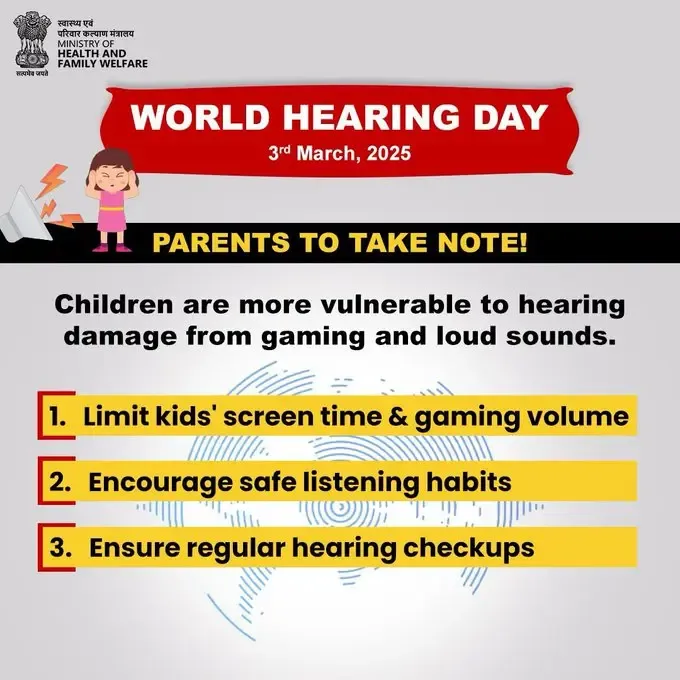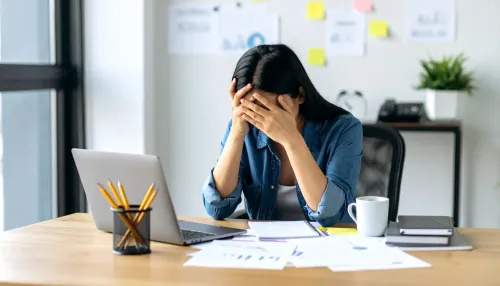Limit Screen Exposure and Gaming Volume to Safeguard Children's Hearing: Health Ministry

Synopsis
Key Takeaways
- Limit screen time for children.
- Reduce gaming volume to protect hearing.
- Encourage regular hearing check-ups.
- Promote safe listening practices.
- Awareness of hearing loss risks is crucial.
New Delhi, March 3 (NationPress) Reducing screen time and lowering gaming volume are crucial steps to avert hearing impairment in children, according to the Ministry of Health and Family Welfare on World Hearing Day this Monday.
World Hearing Day is commemorated annually on March 3 to enhance awareness regarding the prevention of deafness and hearing loss, while promoting ear and hearing care globally. The theme for this year is "Changing mindsets: Empower yourself to make ear and hearing care a reality for all".
The Ministry highlighted that children are particularly susceptible to hearing damage due to heightened screen exposure and loud noises from online gaming. "WorldHearingDay2025 | Children are more vulnerable to hearing damage caused by loud sounds, gaming, and excessive screen time," the Ministry stated in a post on social media platform X.
In advising parents to restrict their children’s exposure, the ministry also recommended measures like regular hearing check-ups and safe listening practices.
“Parents take note. Children are more vulnerable to hearing damage from gaming and loud sounds. Limit kids' screen time and gaming volume,” the ministry stated in an infographic. “Take these simple steps to protect them from hearing loss: encourage safe listening habits and ensure regular hearing check-ups,” it added.
The World Health Organization defines hearing loss as the inability to hear as well as an individual with normal hearing.
While anyone can be at risk for hearing loss, it tends to be more prevalent among seniors over 60, those who regularly listen to loud music through headphones, individuals working in noisy settings, frequent concert-goers, those taking medications that could harm the ear, and those who have suffered ear infections.
In addition, Saima Wazed, Regional Director for WHO South-East Asia emphasized that hearing loss is a growing public health concern, potentially affecting 660 million people in the South-East Asia Region if appropriate actions are not implemented.
“Globally, over 1.5 billion people are impacted, with nearly 80 percent residing in low- and middle-income countries,” Wazed said. “An estimated 400 million individuals face hearing challenges in our South-East Asia Region alone—a number that could escalate to 660 million by 2050 if current trends persist,” she added.
The Regional Director pointed out that hearing issues are preventable through effective and affordable interventions such as hearing screenings and hearing aid services.
She also praised India for conducting “field-testing of training on assistive products hearing modules”. However, she noted that over 80 percent of ear and hearing care needs globally remain unaddressed, and bridging this gap should be a priority.
While urging governments to prioritize ear and hearing care and to combat stigma, Wazed noted that neglecting hearing loss may hinder language development, education, employment, and mental health.









